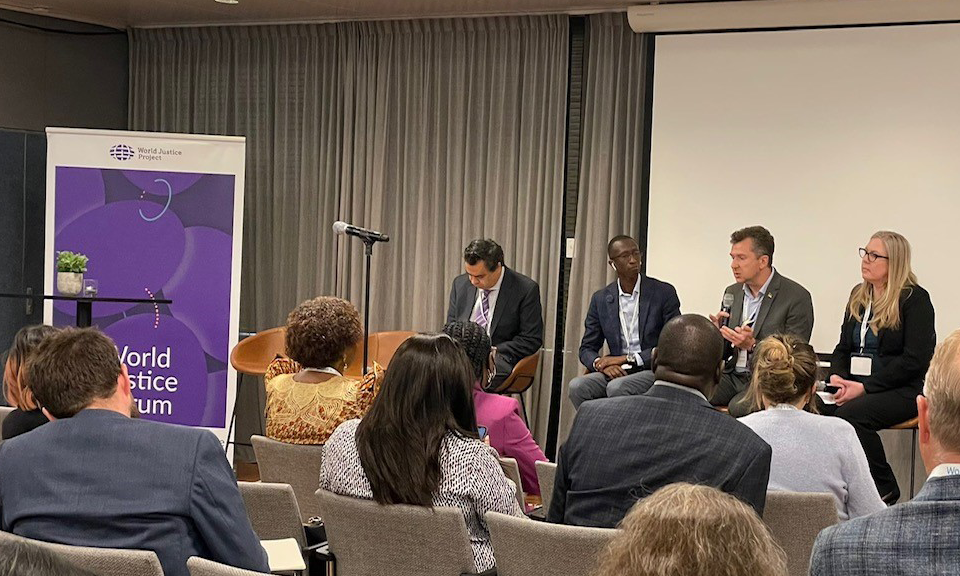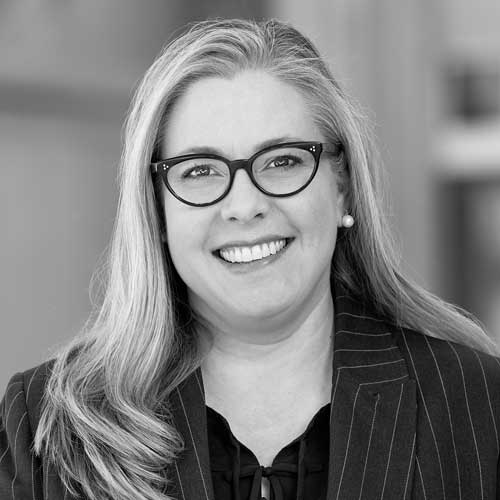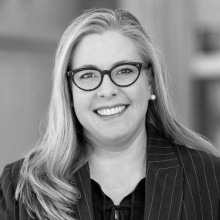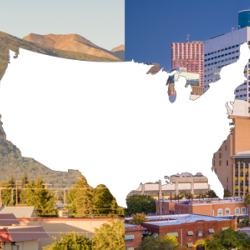World Justice Forum Reinforces Global Commitment to Access to Justice
 Last week, I had the privilege of attending the World Justice Forum 2022: Building More Just Communities, held in The Hague. The forum “tackled the root causes of our global rule of law crisis through three days of agenda setting, learning, and action focused on three intersecting themes—access to justice, anti-corruption and open government, and equal rights and nondiscrimination.”
Last week, I had the privilege of attending the World Justice Forum 2022: Building More Just Communities, held in The Hague. The forum “tackled the root causes of our global rule of law crisis through three days of agenda setting, learning, and action focused on three intersecting themes—access to justice, anti-corruption and open government, and equal rights and nondiscrimination.”
Participants gathered from 116 countries, meeting amidst a global pandemic to talk about the deepening inequities in our world, the worsening climate crisis, food and energy shortages, endemic corruption, the fraying of our social contracts and trust, conflict and war, the deepening access to justice crisis, and the fragility of our justice systems. Despite the weightiness of the agenda and moment we find ourselves in, my takeaway was one of hope and resolve.
Early in the forum I had the privilege of speaking on a panel with my colleague Logan Cornett; our HiiL partner on the US Justice Needs study Martin Gramatikov; Edgar Kuhimbisa with Uganda’s Justice, Law and Order Sector (JLOS); and Alejandro Ponce of the World Justice Project (WJP). The session highlighted key results of the US Justice Needs study and then included a broader discussion regarding the importance of using people-centered data to assess what works and how to target reform efforts in an evidence-based way. We grappled with the attendees regarding the importance—and the challenges—of moving from data to action and realizing justice for all. The best panels are the ones where you leave excited all over again about your own work, energized by the insights from your amazing co-panelists, and inspired by the questions and dialogue in the room. It was all of this and more.
Another colleague, Natalie Anne Knowlton, supplemented a panel that explored what a more functional justice marketplace could look like—one that provides high-quality solutions to people’s justice needs while also creating conditions that allow for investors and innovators to develop transformative justice services at scale.
It is hard to describe the energy and power that comes from gathering people from around the world who are deeply passionate about and committed to achieving justice. It is an inherently energetic, passionate, determined, and awe-inspiring group. The sessions reinforced the essential role of data and a clear research agenda, the importance of a shared understanding and commitment to people-centered justice, and the challenges of identifying what works and then scaling it. Threaded throughout were bold new ideas, examples of innovative approaches that are making a difference in local communities, and commonalities that tie us all together in our global commitment to meeting people’s justice needs.
The conference wrapped up with the issuance of a shared final statement, which concluded as follows:
[A]s we leave The Hague and look toward what we each can do to build more just communities, the message is clear: the rule of law is essential to peace, justice, opportunity, human rights, and sustainable development. We must work together to generate renewed political commitment and investment to ensure it is renewed. We are inspired by what we learned this week about the hundreds of concrete projects and proposals underway that tackle these common challenges, starting with the award-winning work we recognized as part of this year’s World Justice Challenge and WJP Rule of Law Award.
We are encouraged by growing momentum at the grassroots and policy-making levels to carry out change. We hope all the visionary changemakers and thought leaders gathered at the Forum will leave fortified by the solidarity, friendship, and support we felt here to continue their essential contributions to building more just communities.
We call upon all leaders to actively defend and advance universal principles of fair and accountable governance and fundamental rights as we work together at the local, national, and international levels and prepare for the Sustainable Development Goals Summit of 2023.
As WJP Co-Founder and CEO Bill Neukom shared during his closing remarks at the forum, "Everything that's important to get done is difficult to accomplish.” Realizing justice for all is the core of our work at IAALS. That work is as important as it is difficult to accomplish. But with shared challenges comes common purpose, solidarity, opportunities for innovation, and hope. What a privilege to be working on such an important and difficult task—now, let’s turn that into action.



